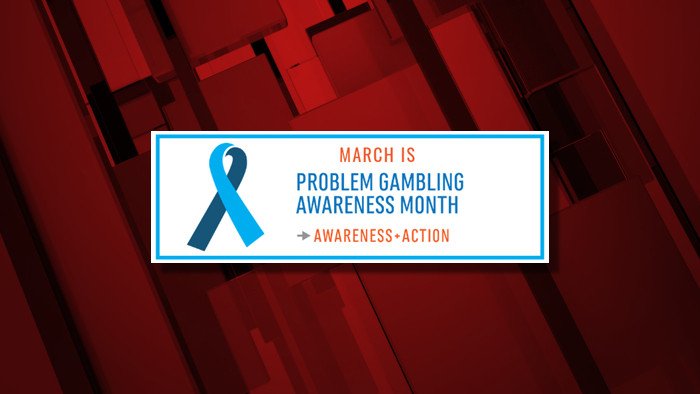March is Problem Gambling Awareness Month

SALEM, Ore. (KTVZ) -- For the 19th year, the Oregon Council on Problem Gambling dedicates March to help increase public awareness of problem gambling and the availability of prevention, treatment and recovery services.
This coincides with the National Problem Gambling Awareness Month, whose campaign theme is “Awareness + Action.”
“Problem Gambling Awareness Month is always important to us, as we highlight a ‘hidden’ addiction that millions of Americans face, including one in every 38 Oregon adults,” said Executive Director of the Oregon Council on Problem Gambling Julie Hynes.
“This year, we bring special attention to problem gambling, given the stress, isolation and financial uncertainty of so many Oregonians throughout the pandemic,” said Hynes. “Some can be tempted to seek hope through jackpots and escape from everyday problems via other gambling options. More widespread legalized online betting, day trading, and even video gaming apps have caused harm for more people this year. We want people to know that they’re not alone, and that there is effective, free and confidential help available for them as well as their loved ones.”
National Problem Gambling Awareness Month is a grassroots effort that brings together a wide range of stakeholders - public health organizations, advocacy groups and gambling operators – who work collaboratively to let people know that hope and help exist.
Outreach continues to be challenging because of the pandemic. People are isolated at home and the need for online gambling resources and options for treatment are critical. Visits to the Oregon Problem Gambling Resource website (www.opgr.org) tend to increase during March as result of the focused marketing and social media outreach efforts.
“Creating awareness of problem gambling and available resources is a statewide commitment that is reflected in the official proclamation that Oregon Lottery and the Oregon Health Authority worked with the Governor’s office to develop,” added Lottery Senior Manager Product Market Stacy Shaw, who is also an officer on the National Council on Problem Gambling board of directors.
“It’s great that people are seeking information,” Shaw added, “and we hope that the conversation and action continues to grow this year. We’re proud to be in a state that has robust system of prevention through treatment services that are free to anyone concerned about gambling problems, and we want people to know that they don’t have to worry about seeking help.
“This year, we are focusing on letting people know that in Oregon treatment is really free, a message that’s important to people struggling with gambling issues.”
Problem Gambling Services Manager Greta Coe, with Oregon Health Authority’s Health Systems Division, notes the COVID pandemic has made this “a very trying and isolating time for many people.” Because of this, she says, it was important for Oregon Problem Gambling Resource (OPGR) and other local community sources to ramp up their outreach activities and media presence to address the increase in gambling activity and addiction.
“We’ve expanded our efforts to build awareness that gambling is an activity that comes with risks,” said Coe, “and it’s crucial we provide both free education and judgment-free treatment for those who develop gambling problems, as well as resources for those impacted by a loved one’s gambling.
The Oregon Lottery’s commitment to problem gambling support is year-round. Since 1992, one percent of Oregon Lottery profits has funded problem gambling treatment and prevention efforts throughout Oregon. Since that time, over $111 million in Lottery funds has supported those services.
To get help for a gambling issue, anyone can call 1-877-MYLIMIT. Treatment is free, confidential and it works. For more information about problem gambling treatment resources or to chat with a specialist, go to Oregon Problem Gambling Resource at opgr.org.
About the Oregon Council on Problem Gambling
The Oregon Council on Problem Gambling is the state affiliate to the National Council on Problem Gambling. Its purpose is to promote the health of Oregonians by supporting efforts to minimize gambling related harm. Board members include stakeholders from the gaming industry, the treatment and prevention field, the recovery community and state and county administrators.